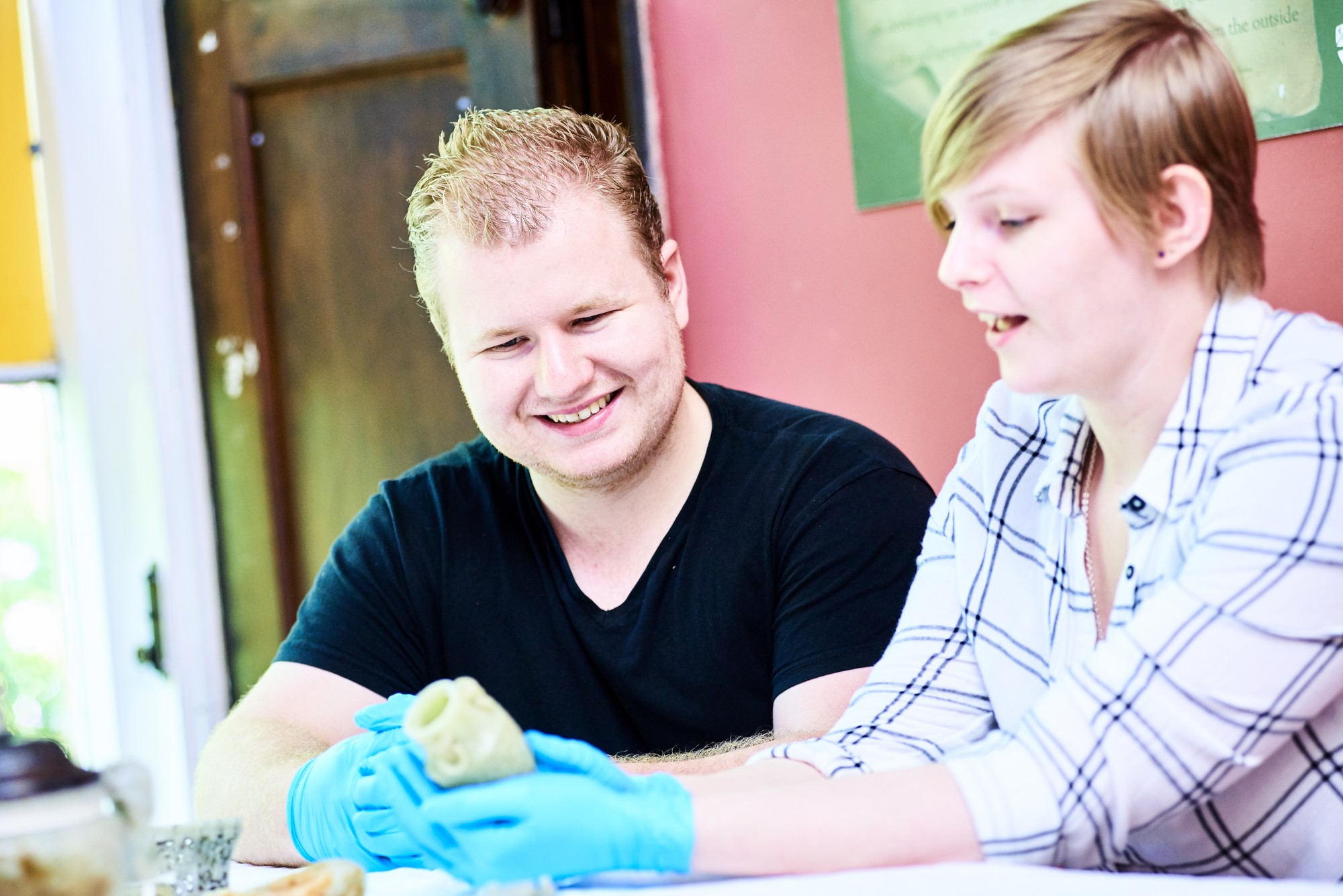Our curatorial team have a wide range of expertise in the areas covered by our collections. We are happy to offer an opinion on your object if we can. Due to the high volume of enquiries, it may take up to six weeks to receive a reply.
Objects in your possession
Please do not bring objects into any of our museums or post objects to us. If you would like us to try to identify an object, please email us:
- Oriental Museum: oriental.museum@durham.ac.uk
- Museum of Archaeology: archaeology.museum@durham.ac.uk
- Durham Castle: castle.collections@durham.ac.uk
- Bioscience Collections: oriental.museum@durham.ac.uk
- Western Art Collections: artcollection@durham.ac.uk
In your email, please share as much information about the object as possible including:
- Description, including material and rough estimate of age if known
- Photographs
- Size and if possible, include a scale on your photograph, for example, a coin or ruler
- Location where the object was found/purchased and year if known.
Please note we CANNOT provide:
- Valuations, appraisals or advice on selling objects
- Translations of text from Chinese, Japanese, Arabic or other Asian languages.
Objects illustrated in publications
If you require additional information about an object from our collections that has been published in a book or elsewhere, please email the appropriate address above, providing us with as much detail as you can (such as a link to, or scan of, the publication).
If you find an archaeological object
In England, Wales and Northern Ireland, all finders of gold and silver objects, and groups of coins from the same finds, over 300 years old, have a legal obligation to report such items under the Treasure Act 1996. Finders of potential Treasure in England and Wales should contact their regional Finds Liaison Officer, through the Portable Antiquities Scheme for help in reporting Treasure and for further advice.
The Portable Antiquities Scheme is a voluntary scheme to record archaeological objects found by members of the public. Every year thousands of objects of archaeological interest are found mostly by metal detector users, although many are also discovered by people engaged in daily activities such as gardening or walking.
In the North East region, the Finds Liaison Officer is employed by Durham County Council.
For more information, please see the Durham County Council website.



/prod01/channel_4/things-to-do/media/things-to-do/research/OM-Gandharan-sculpture-research.jpg)